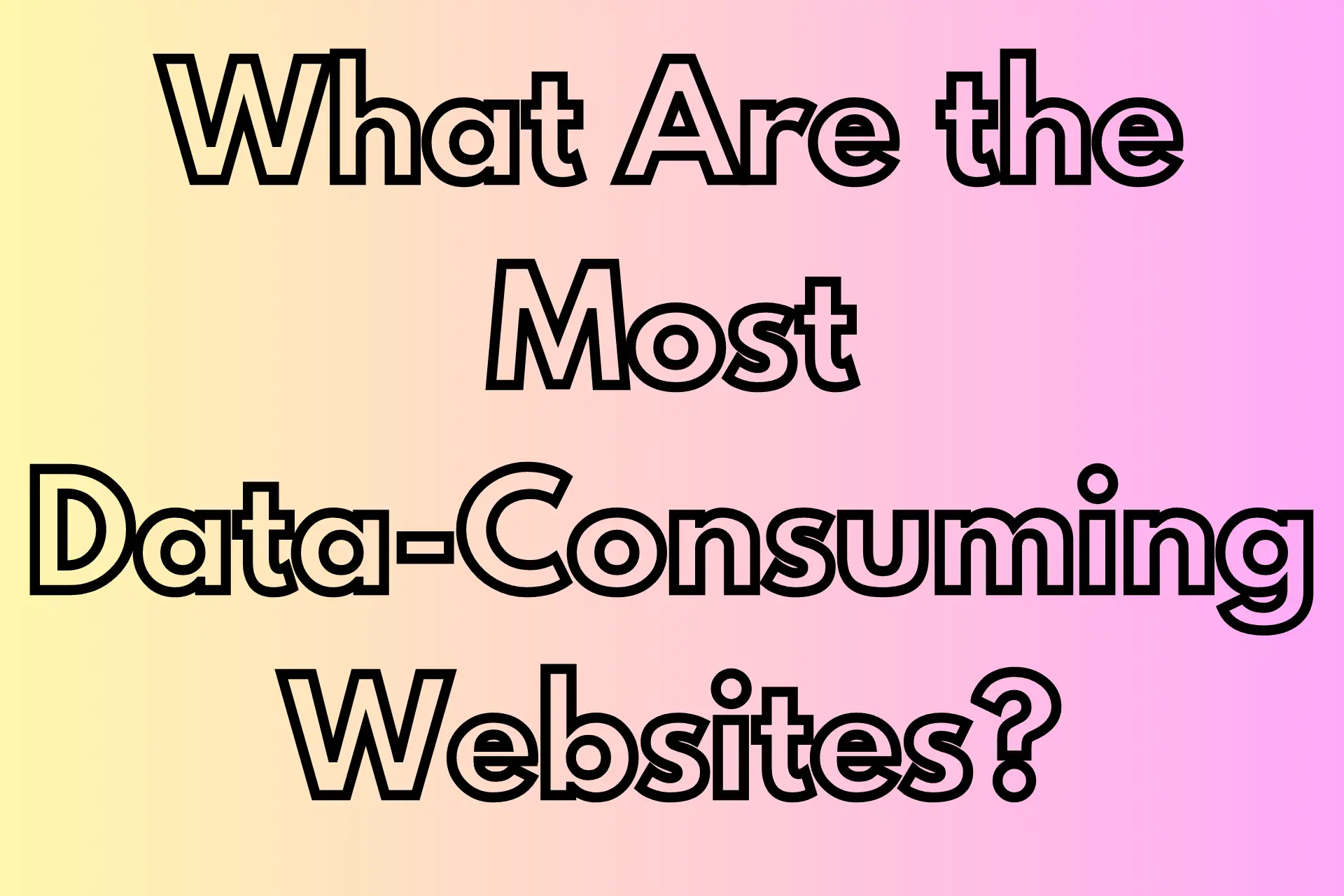What Are the Most Data Consuming Websites? [Examples]
3 min. read
Updated on
Read our disclosure page to find out how can you help VPNCentral sustain the editorial team Read more

The average American household consumes 586.7 GB every month.
To put things into perspective, that would be enough to fully download Encyclopedia Britannica 500 times over.
If you think that’s crazy, experts estimate that this uptrend in data usage will sustain in the foreseeable future.
One of the reasons behind our growing voracious appetite for data is our ever-changing internet use. In general, browsing the Web is less bandwidth-hungry than using apps.
But it would be wrong to assume that websites couldn’t drain your data plan.
Here’s the truth:
The most data consuming websites
The most data consuming websites are media streaming platforms, social media networks, video conferencing services, and browser games.
Here are 10 of the heaviest sites billions of people use every day:
- Netflix.com
- Primevideo.com
- Disneyplus.com
- Hulu.com
- Tv.apple.com
- Youtube.com
- Facebook.com
- Instagram.com
- Twitter.com
- Zoom.us
Let us explain why they gobble up a significant amount of data.
How much data do websites use?
Video quality and your activity would dictate how much data sites use.
Have a look at the table below:
| Website | Activity | Data usage |
| Netflix.com | Ultra HD video streaming | 7 GB/hour |
| Primevideo.com | HD video streaming | 2 GB/hour |
| Disneyplus.com | Ultra HD video streaming | 7.7 GB/hour |
| Hulu.com | Ultra HD video streaming | 7.2 GB/hour |
| Tv.apple.com | Ultra HD video streaming | 8 GB/hour |
| Youtube.com | Ultra HD video streaming | 7 GB/hour |
| Facebook.com | Mix of News Feed browsing, photo viewing, and video streaming | 4.1 MB/minute |
| Instagram.com | Mix of image browsing and video streaming | 600 MB/hour |
| Twitter.com | Mix of tweeting, retweeting, and media viewing | 3 GB/day |
| Zoom.us | Full HD group call | 2.4 GB/hour or 40 MB/minute |
Video is the common denominator for these sites.
For this reason, our collective data usage increases as video quality improves and the technologies that support them become more available.
In fact, you don’t need to actively watch videos to deplete your data allotment.
Sites with an autoplay feature trigger playback the moment you come across a clip. Videos on autoplay may not have audio turned on. So, it can be difficult to notice them.
Moreover, watching videos offline results in less data usage than streaming them. But auto-downloading media you don’t intend to consume later is an utter waste of resources.
Also, advertising is a data pit.
Research shows that ads on news publications can account for up to 79% of mobile data usage.
Without using a VPN with a robust ad blocker, you may unknowingly waste a lot of money on your internet service even if you only read papers online.
Which are the least data-consuming websites?
The least data-consuming websites belong to nonprofits. Good examples are:
- Wikimedia.org
- Wikipedia.org
- Wiktionary.org
- Wikiquote.org
- Wikisource.org
Clearly, wiki sites dominate this list because they’re mostly text. They have simple web design too. Plus, they rely on donations, so they display zero ads.
Summary
Browser-centric online activity can conserve your data. But visiting sites to stream content, view images, hold a group video meeting, or play games can max out your internet plan quickly.
That’s why it’s no wonder that Netflix, Prime Video, and the like are usually the most data-consuming websites.
Conversely, the least draining sites are practically devoid of videos and photos and show no ads. Regardless of where you go online, you can consume your data wisely with the right VPN and web browser.







User forum
0 messages